- Home
- Iris Murdoch
Under the Net Page 4
Under the Net Read online
Page 4
You may wonder whether I ever thought of marrying Anna. I did think of it. But marriage remains for me an Idea of Reason, a concept which may regulate but not constitute my life. I cannot help, whenever I consider a woman, using the possibility of marriage as an illuminating hypothesis which is not in any serious sense an instrument of the actual. With Anna, however, I did come near to taking the thing seriously ; and that, although I’m sure she would never have said yes, was perhaps why I let myself drift away from her in the end. I hate solitude, but I am afraid of intimacy. The substance of my life is a private conversation with myself which to turn into a dialogue would be equivalent to self-destruction. The company which I need is the company which a pub or a café will provide. I have never wanted a communion of souls. It’s already hard enough to tell the truth to oneself. But communion of souls was Anna’s special subject. Also, Anna had a taste for tragedy which made me nervous. She always had her eye lifting for heavy drama. She took life intensely and very hard. Whereas I think it is foolish to take life so, as if you were to provoke a dangerous animal which will break your bones in the end in any case. So when Anna went to France to sing French folksongs in French night clubs I said to her vaguely that I would look her up when she returned, but she knew I wouldn’t and I knew she knew. That was some years ago, and I’d had a peaceful time since then, especially at Earls Court Road.
When I left Dave’s I walked to Shepherd’s Bush and boarded an eighty-eight bus and sat in the front seat on top, and some of the reflections which I have recorded above were passing through my mind. It’s not easy to find someone whom one has mislaid for years in London, particularly if she belongs to the sort of milieu that Anna belonged to, but clearly the first thing to do is to look in the telephone book. So I got off at Oxford Circus and went into the Underground. When I left Goldhawk Road I had no intention of looking for Anna, but by the time I was passing Bond Street it really seemed that there was nothing else in the world that was worth doing. Indeed, it was unclear to me how I had managed to exist without her for so long. But I am like that. For long times I settle down, and in these times I would not stir a finger to lift a guinea a yard off. When I am fixed I am immobile. But when I am unfixed I am volatile, and then I fly at random from point to point like a firecracker or one of Heisenberg’s electrons until I settle down again in another safe place. Also I had a curious faith in Finn’s intuition. It often happened that Finn made some unexpected suggestion which when I followed it up turned out to have been just the thing. I could see that the Earls Court Road phase of my life was over, and that that peace of mind was gone beyond recall. Madge had forced a crisis on me; well, I would explore it, I would even exploit it. Who can tell what day may not inaugurate a new era? I picked up the London phone book L to R.
The phone book told me nothing; I wasn’t surprised. I then rang up two theatre agencies who didn’t know Anna’s whereabouts, and the B.B.C., who did but wouldn’t say. I thought of trying to get hold of Sadie at the Belfounder studio, but I didn’t want Sadie to know that I was looking for Anna. I suspected Sadie of having been a little sweet on me at one time; at any rate she was always rather unpleasant in the old days about my being fond of Anna, although I know that some women regard all men as their personal property, and I thought it possible that she wouldn’t tell me where Anna was even if she knew. Anyway, since Sadie had become so famous I had seen nothing of her, and I didn’t imagine that she would welcome any attempt on my part to renew the acquaintance, particularly if she had been aware that I had been aware of what I conjectured to have been the state of her feelings. By now it was about opening time. It seemed useless to start ringing up the night clubs at this hour, so there was nothing to be done but to work Soho. There is always someone in Soho who knows what one wants to discover ; it’s just a matter of finding him. Also there was always the possibility of my running into Anna herself. My fates are such that as soon as I interest myself in a thing a hundred accidents happen which are precisely relevant to that thing. But I rather hoped that I wouldn’t meet Anna first in a public place, for my mind had already begun to run very much upon this meeting.
I usually keep clear of Soho, partly because it’s so bad for the nerves and partly because it’s so expensive. It’s expensive not so much because the nervous tension makes one drink continually as because of the people who come and take one’s money away. I am very bad at refusing people who ask me for money. I can never think of a reason why if I have more ready cash than they have I should not be bound to give them some at least of what I have. I give with resentment but without hesitation. By the time I had worked my way along Brewer Street and Old Compton Street and up Greek Street as far as the Pillars of Hercules most of the money in my pocket had been taken away by various acquaintances. I was feeling extremely nervous by this time, not only because of Soho but because of imagining whenever I entered a pub that I should find Anna inside. I had been to these pubs a hundred times in the last few years without this thought coming into my head ; but now suddenly the whole of London had become an empty frame. Every place lacked her and expected her. I began to drink spirits.
When I found myself short of money I crossed the street to cash a cheque at one of my afternoon drinking clubs that lay close by; and it was there that at last I picked up the trail. I asked the barman if he knew where Anna was to be found these days. He replied yes, he thought that she was running some sort of little theatre in Hammersmith. He searched under the bar and produced a card which bore the words The Riverside Theatre, and an address on Hammersmith Mall. The barman said he didn’t know whether she was still there, but that that’s where she was some months ago. She had left him this card to give to some gentleman who had never turned up. I might as well have it now, the barman said. I took it, and went into the street with my heart pounding. It needed serious reflection on the state of my finances to prevent me from taking a taxi to Hammersmith. But I ran all the way to Leicester Square station.
Three
THE address I had been given was on that part of the Mall that lies between the Doves and the Black Lion. On Chiswick Mall the houses face the river, but on that piece of Hammersmith Mall which is relevant to my tale they turn their backs to the river and pretend to be an ordinary street. Chiswick Mall is a lazy collection of houses and greenery that looks dreamily out on to the water, but Hammersmith Mall is a labyrinth of waterworks and laundries with pubs and Georgian houses in between, which sometimes face the river and sometimes back it. The number to which I had been directed turned out to be a house standing a little by itself, with its back to the river and its front on a quiet piece of street, and an opening beside it where some steps led down to the water.
By now I was in no such hurry. I looked at the house with suspicious curiosity, and it seemed to be looking back at me. It was a brooding self-absorbed sort of house, fronted by a small ragged garden and a wall shoulder high. The house was square, with rows of tall windows, and had preserved a remnant of elegance. I approached the iron gate in the wall. It was then that I observed a poster which was fixed on the other side of the gate. It was a home-made poster whose colours were running a bit, so that it had a rather sad appearance. I deciphered it. It said:RIVERSIDE MIMING THEATRE
Reopening on August 1st with a luxurious and fanciful production of Ivan Lazemnikov’s great farce MARISHKA. Members only. The audience is requested to laugh softly and not to applaud.
I stared at this object for some time. I don’t know why, but it struck me as queer. Finally, with a slow crescendo in the region of the heart I pushed open the gate, which was a little rusty, and walked up to the house. The windows gleamed blackly, like eyes behind dark glasses. The door was newly painted. I did not look for a bell, but tried the handle at once. The door opened quietly and I stepped on tiptoe into the hall. An oppressive silence surged out of the place like a cloud. I closed the door and shut out all the little noises of the river front. Now there was nothing but the silence.
I stood perf
ectly still for a while until my breathing became more regular, and until I could see my way in the dark hall. As I did these things I was asking myself why I was behaving in such an odd way, but the possible proximity of Anna confused me completely, so that I couldn’t think but could only perform the little series of actions which suggested themselves with a feeling of inevitability. I walked slowly down the hall, planting my feet with care on a long black sound-absorbing rug. When I came to the stairs I glided up them; I suppose my feet touched the steps. I could hear no sound.
I found myself on a broad landing, with a carved wooden balustrade behind me and several doors in front of me. Everything seemed neat and nicely appointed. The carpets were thick, and the woodwork as clean as an apple. I looked about me. It didn’t occur to me to doubt that Anna was somewhere near, any more than it occurred to me to call her name or utter any other sound. I moved to the nearest door and opened it wide. Then I got a shock that stiffened me from head to toe.
I was looking straight into seven or eight pairs of staring eyes, which seemed to be located a few feet from my face. I stepped back hastily, and the door swung to again with a faint click which was the first sound I had heard since I entered the house. I stood still for a moment in utter incomprehension, my scalp prickling. Then I seized the handle firmly and opened the door again, stepping as I did so into the doorway. The faces had moved, but were still turned towards me; and then in an instant I understood. I was in the gallery of a tiny theatre. The gallery, sloping and foreshortened, seemed to give immediately on to the stage; and on the stage were a number of actors, moving silently to and fro, and wearing masks which they kept turned towards the auditorium. These masks were a little larger than life, and this fact accounted for the extraordinary impression of closeness which I had received when I first opened the door. My perceptual field now adjusted itself, and I looked with fascinated interest and surprise upon the strange scene.
The masks were not attached to the face, but mounted upon a rod which the actor held in his right hand and skilfully maintained in parallel to the footlights, so that no hint of the actor’s real features could be seen. Most of the masks were made full face, but two of them, which were worn by the only two women on the scene, were made in profile. The mask features were grotesque and stylized, but with a certain queer beauty. I noticed particularly the two female masks, one of them sensual and serene, and the other nervous, watchful, hypocritical. These two masks had the eyes filled in, but the male masks had empty eyes through which the eyes of the actors gleamed oddly. All were dressed in white, the men in white peasant shirts and breeches, and the women in plain ankle-length white robes caught in at the waist. I wondered if this was Lazemnikov’s great farce Marishka; both Marishka and its author were equally strange to me.
The actors meanwhile were continuing to execute their movements in the extraordinary silence which seemed to keep the whole house spellbound. I saw that they were wearing soft close-fitting slippers and that the stage was carpeted. They moved about the stage with gliding or slouching movements, turning their masked heads from side to side, and I observed something of that queer expressiveness of neck and shoulder in which Indian dancers excel. Their left hands performed a variety of simple conventional gestures. I had never seen mime quite like this before. The effect was hypnotic. What was going on was not clear to me, but it seemed that a huge burly central figure, wearing a mask which expressed a sort of humble yearning stupidity, was being mocked by the other players. I examined the two women carefully, wondering if either of them was Anna; but I was certain that neither was. I should have known her at once. Then my attention was caught by the burly simpleton. For some time I stared at the mask, with its grotesque immobility and the flash of eyes behind it. A sort of force seemed to radiate from those eyes which entered into me with a gentle shock. I stared and started. There was something about that hulking form that seemed vaguely familiar.
At that moment, with one of the movements, the stage creaked, and the backcloth shivered slightly. This sound brought me to myself, and brought with it the sudden alarming realization that the actors could see me. On tiptoe I moved back on to the landing and closed the door. The silence was over me like a great bell, but the whole place throbbed with a soundless vibration which it took me a moment to recognize as the beating of my own heart. I turned now to look at the other doors. One at the far end of the landing had a little notice on it. I read, in large letters, Props Room, and underneath in smaller letters, Miss Quentin. I closed my eyes for a moment and stilled my breathing. Then I knocked.
The sound echoed strangely. Then a husky voice said: ‘Come in.’
I stepped into the room. It was a long narrow room with large windows opening in to the river, and it was filled to overflowing with a sort of multicoloured chaos which I couldn’t at the first moment take in. In the midst of this Anna sat writing at a desk with her back to me. I shut the door behind me as she turned slowly. For a long moment we looked at each other in silence. Like a filling glass I felt my soul rise into my eyes; and in the intense equilibrium of the meeting we both experienced almost a moment of contemplation. Anna got up and said ‘Jake!’ Then I saw her.
She was plumper and had not defended herself against time. There was about her a sort of wrecked look which was infinitely touching. Her face, which I remembered as round and smooth as an apricot, was become just a little tense and drawn, and her neck now revealed her age. The great brown eyes, which once opened so blandly upon the world, seemed narrowed, and where Anna had used to draw a dark line upward at their corners the years had sketched in a little sheaf of wrinkles. Tresses of hair which had escaped from the complex coronet curled about her neck, and I could see streaks of grey. I looked upon the face that I had known so well and now that for the first time I saw its beauty as mortal I felt that I had never loved it so dearly. Anna took in my glance, and then with an instinctive gesture she took refuge behind her hands.
‘What brings you here, Jake?’ said Anna.
The spell was broken. ‘I wanted to see you,’ I said; and now I was anxious just to avoid looking at her and to collect my wits. I looked around the room. An astonishing medley of objects lay about in piles which in places reached up to the ceiling. The contents of the room had a sort of strange cohesion and homogeneity, and they seemed to adhere to the walls like the contents of a half-empty jam jar. Yet here was every kind of thing. It was like a vast toy shop that had been hit by a bomb. In my first glance I noticed a French horn, a rocking-horse, a set of red-striped tin trumpets, some Chinese silk robes, a couple of rifles, Paisley shawls, teddy bears, glass balls, tangles of necklaces and other jewellery, a convex mirror, a stuffed snake, countless toy animals, and a number of tin trunks out of which multi-coloured costumes trailed. Exquisite and expensive playthings lay enlaced with the gimcrack contents of Christmas crackers. I sat down on the nearest seat, which happened to be the back of the rocking-horse, and surveyed the scene.
‘What is this extraordinary place?’ I said. ‘What are you doing these days, Anna?’
‘Oh, this and that,’ said Anna. She had always used to say this when she didn’t want to tell me something. I could see she was nervous, and as she talked she kept picking things up, now a piece of ribbon, or now a ball or a long band of Brussels lace.
‘How did you find this place?’ she asked. I told her.
‘Why did you come?’
I didn’t want to embark on a routine series of questions and answers. What did it matter why I had come? I didn’t know myself.
‘I’ve been turned out of a place where I live.’ This wasn’t very explicit, but I couldn’t think of anything to tell but the truth.
‘Oh!’ said Anna.
Then she asked, ‘What have you been doing all these years?’
I wished I had something impressive to say, but again I could think of nothing but the truth. ‘I’ve done some translating and some broadcasting,’ I said. ‘I’ve managed.’
But I cou
ld see Anna wasn’t really listening to my replies. She picked up a pair of red gloves, and pulled one of them on, smooth-out the fingers and averting her eyes from me.
‘Seen any of our old friends, lately?’ she asked.
I felt I really couldn’t answer this. ‘Who cares about our old friends?’ I said.
What is more tormenting than a meeting after a long time, when all the words fall to the ground like dead things, and the spirit that should animate them floats disembodied in the air? We both felt its presence.
‘You look just the same, Jake,’ said Anna. It was true. I still looked much as I did when I was twenty-four.
She added, ‘I wish I did!’
‘You look lovely,’ I said.
Anna laughed, and picked up a wreath of artificial flowers. ‘What a mess this place is!’ she said. ‘I keep meaning to tidy it.’
‘It’s lovely too,’ I said.
‘Well, if you call this lovely!’ said Anna.
All this time she avoided my eye. In a moment we should be talking soberly like two old acquaintances. I wasn’t going to allow this. I looked at her, and amid the enchanting chaos of silks and animals and improbable objects that seemed to rise almost to her waist she looked like a very wise mermaid rising out of a motley coloured sea; but in a moment she would have escaped me. The strangeness of the whole day was suddenly present to me with a kind of impetus; and immediately I had an idea. In the old days the living-room of Anna’s Bayswater flat had been so surrounded by other windows that there was only one comer of the room, low down on the floor, which was not overlooked. So if I wanted to kiss Anna this was the only place where I could do it. At that time too I had, in a not entirely disinterested fashion, been teaching Anna some Judo, and one of our customs had been that when I came in I would seize her and throw her down into this comer to be kissed. The memory of this rose in me now like an inspiration and I advanced upon her. I took her wrist, and for an instant saw her eyes wide with alarm, very close to mine, and then in a moment I had thrown her, very carefully, on to a pile of velvet costumes in the comer of the room. My knee sank into the velvet beside her, and straight away a mass of scarves, laces, tin trumpets, woolly dogs, fancy hats and other objects came cascading down on top of us until we were half buried. I kissed Anna.

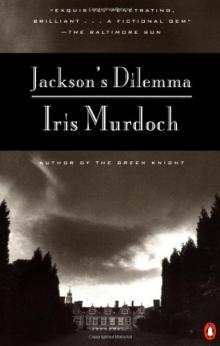 Jackson's Dilemma
Jackson's Dilemma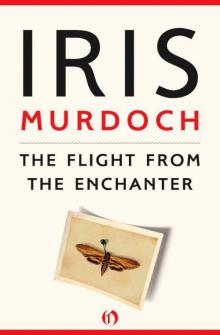 The Flight From the Enchanter
The Flight From the Enchanter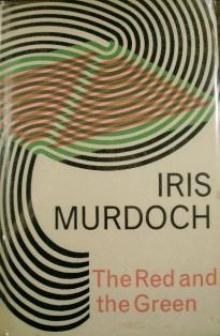 The Red and the Green (Vintage Classics)
The Red and the Green (Vintage Classics)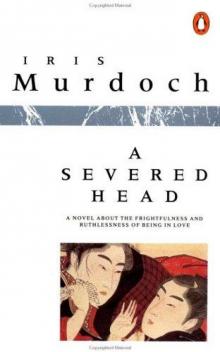 A Severed Head
A Severed Head The Black Prince
The Black Prince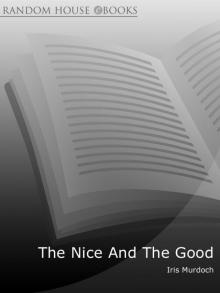 The Nice and the Good
The Nice and the Good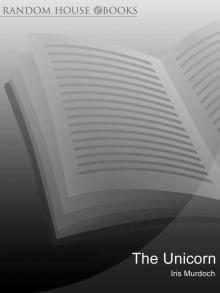 The Unicorn
The Unicorn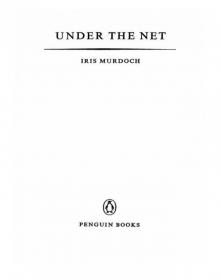 Under the Net
Under the Net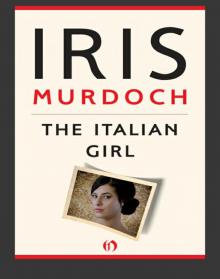 The Italian Girl
The Italian Girl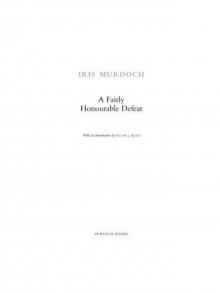 A Fairly Honourable Defeat
A Fairly Honourable Defeat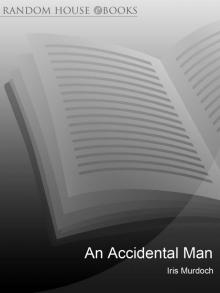 An Accidental Man
An Accidental Man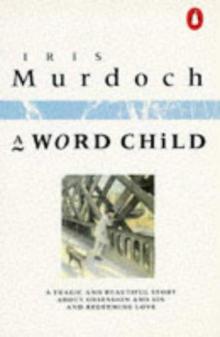 A Word Child
A Word Child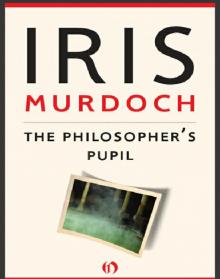 The Philosopher's Pupil
The Philosopher's Pupil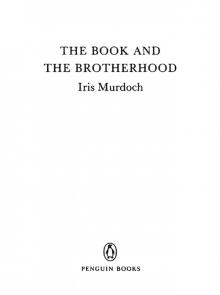 The Book and the Brotherhood
The Book and the Brotherhood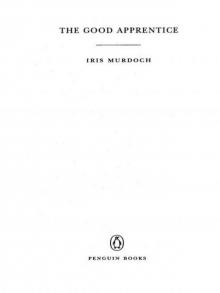 The Good Apprentice
The Good Apprentice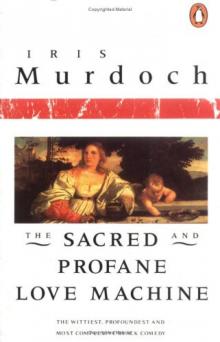 The Sacred and Profane Love Machine
The Sacred and Profane Love Machine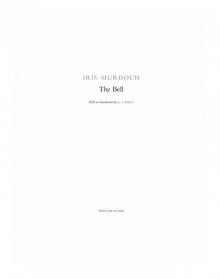 The Bell
The Bell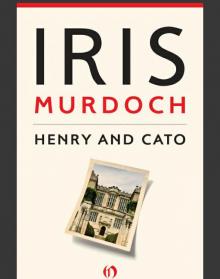 Henry and Cato
Henry and Cato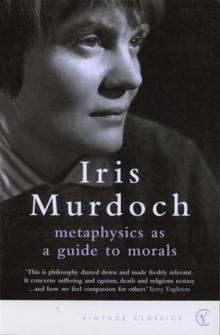 Metaphysics as a Guide to Morals
Metaphysics as a Guide to Morals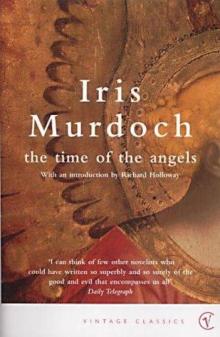 The Time of the Angels
The Time of the Angels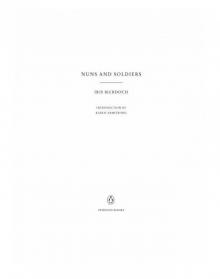 Nuns and Soldiers
Nuns and Soldiers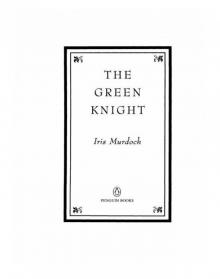 The Green Knight
The Green Knight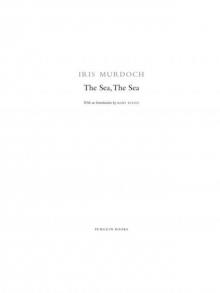 The Sea, the Sea
The Sea, the Sea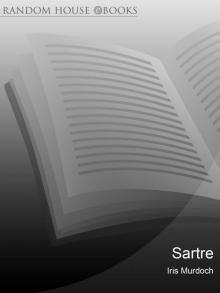 Sartre: Romantic Rationalist
Sartre: Romantic Rationalist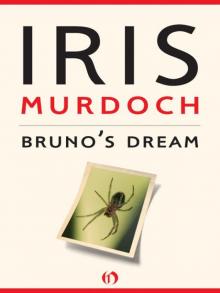 Bruno's Dream
Bruno's Dream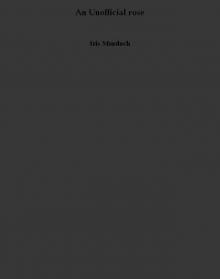 An Unofficial rose
An Unofficial rose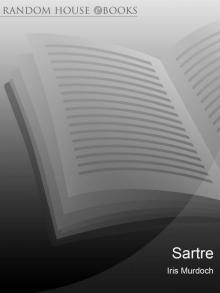 Sartre
Sartre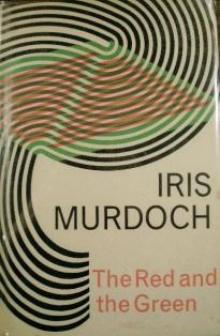 The Red and The Green
The Red and The Green